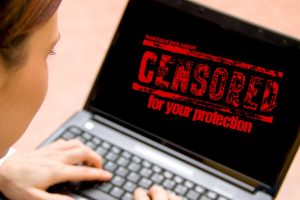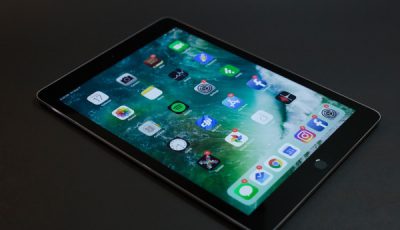Another Anti-Porn ‘Victory’ on the Horizon for EIE?
 NOTRE DAME, Ind. – A student-led effort to get the University of Notre Dame to filter porn from the university’s Wi-Fi network has gained an off-campus ally with lots of experience pressuring businesses and other entities to adopt an anti-porn stance – the anti-porn group Enough is Enough (EIE).
NOTRE DAME, Ind. – A student-led effort to get the University of Notre Dame to filter porn from the university’s Wi-Fi network has gained an off-campus ally with lots of experience pressuring businesses and other entities to adopt an anti-porn stance – the anti-porn group Enough is Enough (EIE).
Earlier this month, EIE started a petition on CitizenGo in which it “calls on University of Notre Dame officials to listen to its students” and filter its Wi-Fi network.
“We are proud of Notre Dame’s students – both male and female – who are boldly calling for a filtering solution on university-funded public Wi-Fi,” said EIE President and CEO Donna Rice Hughes. “Students imploring the Catholic universities’ leadership in an appeal for safe and secure Wi-Fi sends a loud and clear message, one that must be heard and acted upon. These courageous students want and deserve the protection of those entrusted with their physical, spiritual and mental well-being.”
Calling on entities to filter their public Wi-Fi is nothing new for EIE, of course. The group has not been shy about trumpeting its various “victories” on that front over the years, including when McDonalds began filtering its Wi-Fi.
Whether Notre Dame will do as McDonalds did is unclear. Rice Hughes told Indiana radio station WVPE the university has not responded to its petition, which as of this writing has 8378 of the 10,000 signatures it seeks, since being posted on December 7.
“This type of content, having it readily available to anyone on campus is showing a lack of responsibility and oftentimes we find that corporate leaders and university leaders haven’t thought about the importance of making sure the Wi-Fi that they are providing is safe,” Rice Hughes said.
Paul Browne, a Notre Dame spokesman, indicated that while the university was inclined to agree with EIE on the perils and detriments of porn, it also expects its students to self-filter.
“We recognize the good intentions behind this effort, but we think there’s a simple solution: don’t use it,” Browne said.
Browne also noted the university does have policies against using university equipment to access online porn and discourages students from using their own computers and mobile devices to do so.
It’s highly unlikely Rice Hughes and EIE will be satisfied with the university’s “don’t use it” self-filtering approach to porn on its Wi-Fi, of course. In the EIE’s CitizenGo petition, Rice Hughes suggested that not filtering the Wi-Fi is negligent and exposes students to a litany of risks and harm.
“We implore University officials to implement readily-available technology solutions and respond to the collective voices of its students,” Rice Hughes said in the petition. “Be responsible and don’t contribute to the factors leading to the objectification of women, addiction and destructive behavior. Stand for the safety and dignity of your future leaders. Ease the minds of parents so they can feel secure in the environment in which they are sending their child to study and flourish so that their students can say ‘Not Me’ instead of ‘Me Too.’”
Some question whether the Wi-Fi filtering would accomplish much, were it to be implemented. In a letter to The Observer, the Notre Dame/St. Mary’s student newspaper, two female students noted that “people can always send nudes, read vintage Playboy, pop in a DVD or just use their cellular data.”
“This seems like a lot of work for a publicity stunt destined… to have mediocre success at limiting the porn consumption on campus at best,” the two students added.













